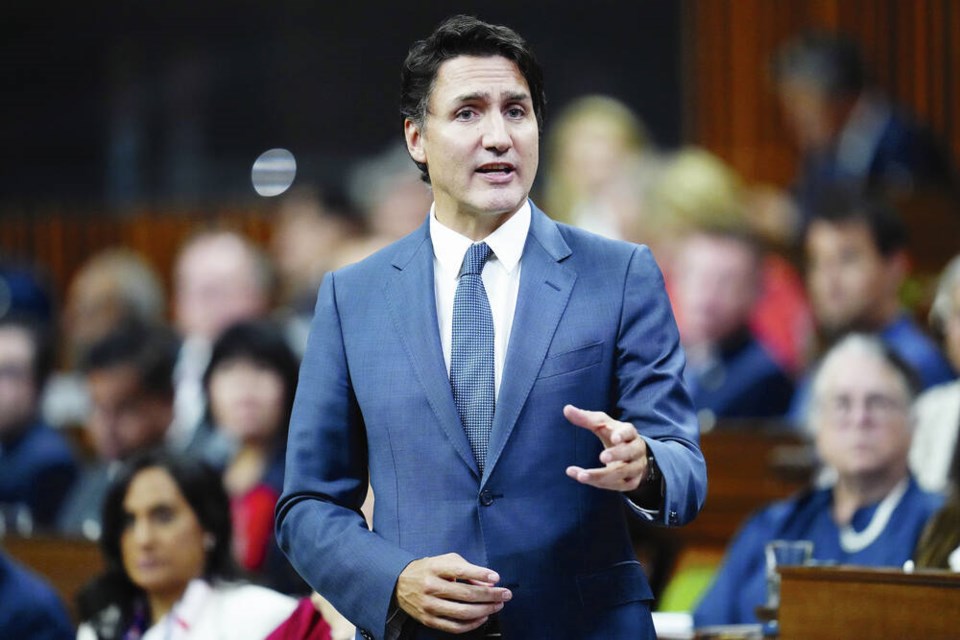B.C. cabinet ministers Josie Osborne and George Heyman said the province will be “taking action” after Prime Minister Justin Trudeau hit pause on the federal carbon tax for home-heating oil in Atlantic Canada, Ontario and the Prairie provinces.
Trudeau announced the measure, set to last three years, on Thursday along with improved incentives for homeowners to install electric heat pumps, giving them time to make the switch.
The relief would apply only to provinces where the federal fuel charge applies: Alberta, Saskatchewan, Manitoba, Ontario, New Brunswick, Nova Scotia, Prince Edward Island, Newfoundland and Labrador, Nunavut, and Yukon.
B.C. was excluded because the province has its own carbon tax regime, predating the federal version.
Osborne, B.C.'s minister of energy, mines and low carbon innovation, said the province has pushed Ottawa to explain exactly the kind of joint rebate on heat pumps now on offer in other provinces and found it disappointing that the feds acted first with jurisdictions with weaker climate plans.
In a statement, ministry staff said B.C. ministers will lobby their federal counterparts to insist Ottawa extend that offer so British Columbians using heating oil can have the same access to those jointly administered rebates.
The statement, emailed in response to questions from Postmedia, said ministry staff are reviewing the details of the federal announcement and are looking at other ways to help households that rely on heating oil, but didn’t acknowledge whether a similar exemption from B.C.’s 16.5-cents-per-litre carbon tax on diesel and light oils would be included.
Home-heating oil “is less common in B.C. than other parts of the country, [but] we know there are British Columbians who still rely on that,” Osborne said.
What is heating oil?
Light oils comprised of mostly diesel and other light oils to make furnace oil and more-refined diesel to make stove oil.
How many B.C. households use heating oil?
Some 39,400 B.C. households used heating oil as of 2020, the last year for which Natural Resources Canada has data, representing 1.8 per cent of the total. By comparison, 953,600 households use natural gas and 878,700 rely on electric heat.
Natural Resources Canada estimated that British Columbians burned one-tenth of a petajoule of heating oil in 2020, which is equivalent to about 2.6 million litres of diesel, heating oil’s primary component.
How many B.C. households use heat pumps?
About 200,000 B.C. households have installed heat pumps, according to B.C. Hydro, about 10 per cent of its customers.
What are B.C.’s incentives for switching to heat pumps?
B.C. Hydro offers rebates of up to $3,000 for switching from fossil-fuel heating to heat pumps, which can be combined with a $3,000 Clean B.C. incentive and $5,000 from the federal Canada Greener Homes Grant, depending on eligibility.
According to B.C. Hydro, applications for incentive programs have increased in recent years and the utility has offered 30,000 rebates since its program began. Fortis B.C. issued 230 rebates in 2022 within the coverage area of its electric utility, which is primarily in the Kootenays.
— With files from Vaughn Palmer



